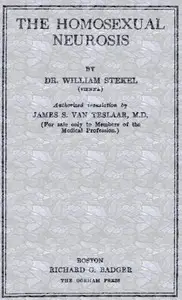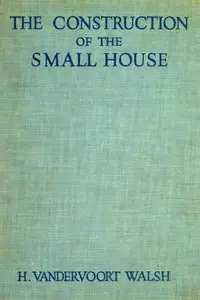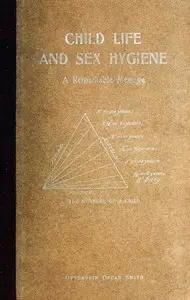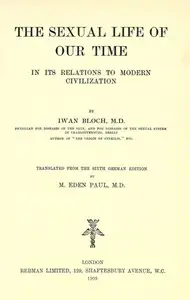"Bi-sexual Love; the Homosexual Neurosis" by Wilhelm Stekel is a scientific publication written in the early 20th century. This work serves as a significant contribution to the understanding of sexuality, specifically focusing on bisexuality and the psychological aspects of homosexuality. Through clinical studies and psychoanalytical insights, the book seeks to unravel the complexities surrounding human sexual desire and the interplay of various psychological elements. At the start of the book, the author introduces the common misconceptions about the causes of homosexuality, particularly the erroneous belief that masturbation leads to such inclinations. Stekel references various notable figures in psychoanalysis, such as Krafft-Ebing and Moll, while critiquing their perspectives on hereditary versus acquired homosexuality. He emphasizes that all individuals are inherently bisexual and discusses the psychological factors that influence sexual orientation, asserting that repression of one’s desires contributes to neurosis. This opening sets the stage for a deeper exploration into the intricate relationships between sexuality, neurosis, and individual psychological development throughout the rest of the text. (This is an automatically generated summary.)

Bi-sexual love; the homosexual neurosis
By Wilhelm Stekel
Translation of part of the second part of the author's Onanie und homosexualität.
Wilhelm Stekel was an Austrian physician and psychologist, who became one of Sigmund Freud's earliest followers, and was once described as "Freud's most distinguished pupil". According to Ernest Jones, "Stekel may be accorded the honour, together with Freud, of having founded the first psycho-analytic society". However, a phrase used by Freud in a letter to Stekel, "the Psychological Society founded by you", suggests that the initiative was entirely Stekel's. Jones also wrote of Stekel that he was "a naturally gifted psychologist with an unusual flair for detecting repressed material". Freud and Stekel later had a falling-out, with Freud announcing in November 1912 that "Stekel is going his own way". A letter from Freud to Stekel dated January 1924 indicates that the falling out was on interpersonal rather than theoretical grounds, and that at some point Freud developed a low opinion of his former associate. He wrote: "I...contradict your often repeated assertion that you were rejected by me on account of scientific differences. This sounds quite good in public but it doesn't correspond with the truth. It was exclusively your personal qualities—usually described as character and behavior—which made collaboration with you impossible for my friends and myself." Stekel's works are translated and published in many languages.















